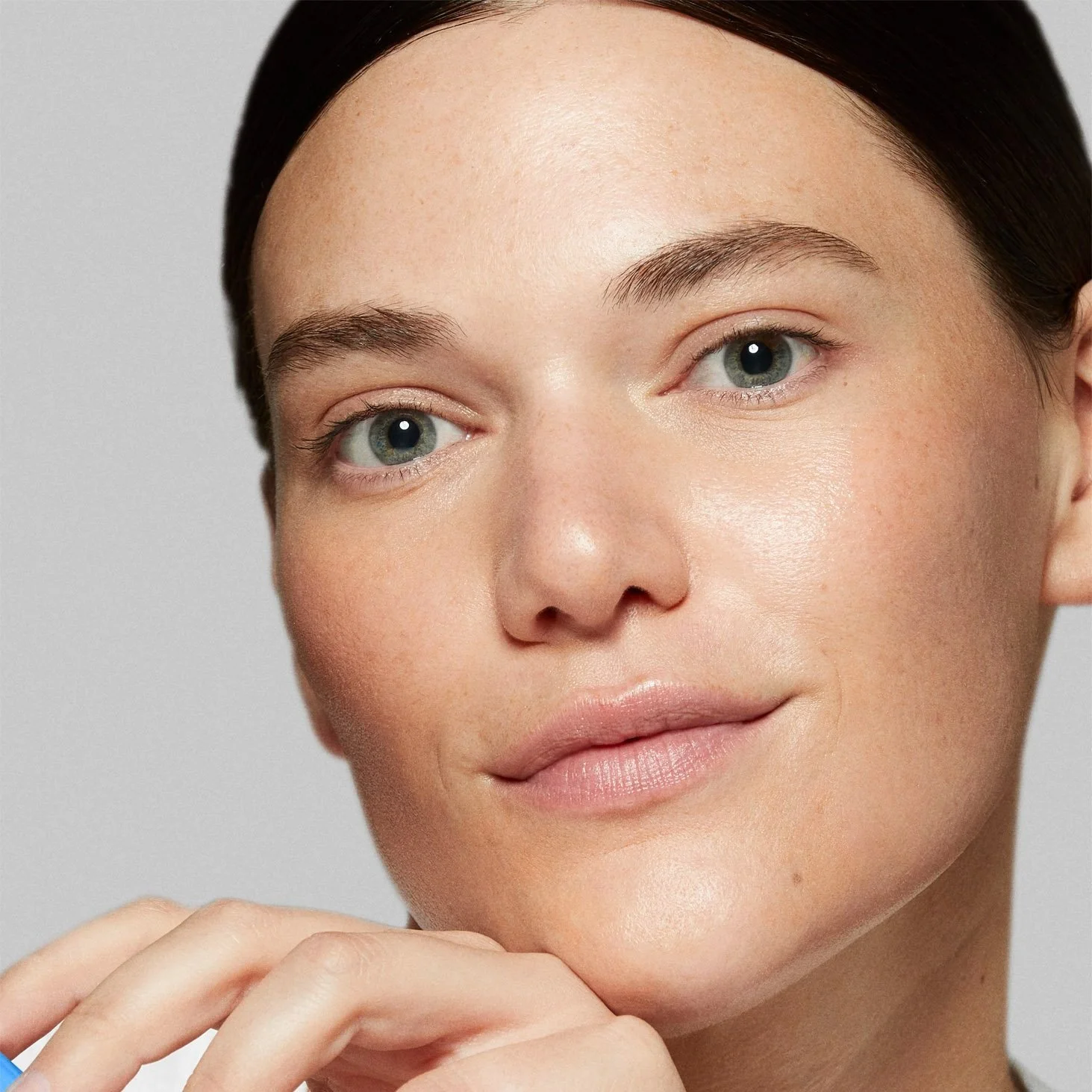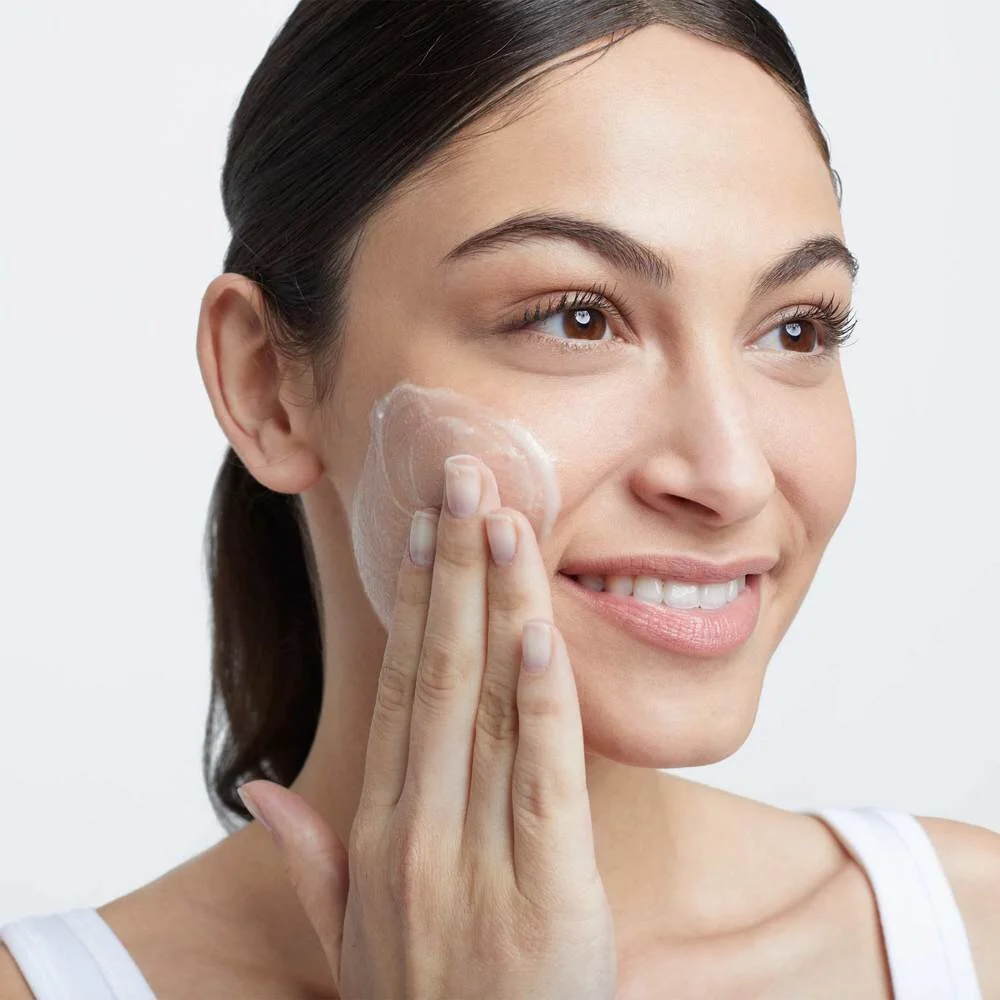Maskne: Everything You Need to Know About Breakouts Caused by Wearing a Face Mask
You may have noticed the term “maskne” popping up in recent times. So what exactly is maskne? In technical terms, maskne is a form of acne mechanica. This is where a combination of friction and heat leads to the eruption of breakouts on the targeted area of the skin.
Acne mechanica is typically common among athletes who wear tight fitted clothing and equipment such as shoulder pads and helmets. But with the introduction of face masks, we’re witnessing a new driver of acne mechanica.
Maskne and The Skin’s Microbiome
As mentioned, wearing a mask creates friction and heat on the skin. This in turn increases circulation, sweating and oil flow. What’s more, your face mask traps in your breath, which further increases humidity. The result? A whole new micro-climate under the mask.
By now you may be familiar with the notion that just like our gut, our skin is home to a unique, abundant bacteria community. Some of these bacteria are good, working hard to promote a healthy, balanced skin. And of course, there are the “bad” bacteria that can disrupt the harmony of our skin.
The change in micro-climate caused by wearing a face mask brings about a change in our skin’s microbiome. This new hot and damp environment, along with the increase in oil, is the perfect climate for acne causing bacteria to multiply and thrive - hence the link between wearing a face mask and getting breakouts on your cheeks and around your mouth. This is also the area of the face where women tend to break out around menstruation or when they’re experiencing prolonged stress (which many of us can testify to currently).
How to Prevent Maskne
First things first, prevention is always better than cure. There are several things you can do to help to keep your skin clear in the era of the face mask, starting with the face mask itself.
Find a face mask that fits properly, but isn’t too tight, as this will only cause more friction and heat.
If you have a fabric face mask, make sure it’s washed every day. It's best having a number of masks so you can rotate them and have a clean one to wear each day. If you’re opting for a disposable mask, then d-is-p-o-s-e of it (correctly and ethically) after use; these should only be worn once.
Also, try to go make-up free under the mask. If you’re wearing make-up with comedogenic (congestion causing) ingredients, such as artificial colours, this will add to the problem. If you require some level of coverage, Skin Perfect Primer SPF30 provides a “non-make-up, make-up look”. Not only does it protect from UV rays, it contains Hyaluronic Acid to increase hydration and crushed Pearl Powder which imparts a natural glow. Or you can also try a healthy mineral makeup like Youngblood Mineral Makeup which is a weightless, breathable mineral blend
Having a consistent and comprehensive skin regimen is increasingly important right now. To keep your skin clean and free from excess oil, be sure to kick off your daily skincare routine with a double cleanse. Your first cleanse with a pre cleansing oil or balm, the second with a skin specific cleanser. Plant based oils or balms act like magnets for the oils on your skin, binding to oil soluble dirt and grime – when you add water, it lifts off the oil, dirt and grime, so it is rinsed away. Chose from PreCleanse Oil, or for a direr skin, PreCleanse Balm.
Exfoliation is your skin saviour from preventing maskne. It’ll help to reduce build up in the pore, a key factor in the formation of breakouts. It’ll also up your glow and your serums and moisturisers will absorb better on a freshly exfoliated skin. Daily Superfoliant is designed to give the skin a gentle detox every day. It combines the power of detoxifying and brightening Activated Charcoal, with skin smoothing enzymes and AHA’s. It also has a specialised complex to protect the skin from pollution, which is equally in the home as it is outside. It can be used once a day, or every few days, to keep skin smooth, clear and protected.
Treating Your Mask Related Breakouts
If you are experiencing breakouts from your mask, treat them head on with a targeted spot treatment such as AGE Bright Spot Fader. This gentle, yet powerful treatment contains a patented complex that supports the skin’s good bacteria while tackling the acne causing bacteria. As a secondary function, it helps fade the post-breakout marks, so keep applying until any evidence of your breakouts has gone.
If you’re getting congestion as opposed to angry breakouts, treat your skin to a prebiotic cleanser such as Active Clay Cleanser. Along with the prebiotic technology that keeps the skin’s balanced, it features detoxifying Activated Charcoal, plus botanical lipids, that together leave the skin feeling clean and soft.
Face Mask Skin Irritation
Unfortunately, breakouts are not the only skin related side effect from wearing a mask. For some of us, we’re finding our skin is red, angry and sensitised from the friction and heat (Irritant Contact Dermatitis). The type of detergent used to wash your mask could also be contributing to increased skin sensitivity. If this is you, keep your skincare regimen simple, avoid artificial fragrances and focus on Dermalogica's UltraCalming system.
Face masks are the future (and for good reason). If you’re suffering from maskne, practice good mask hygiene and make some enhancements to your skincare routine, to manage this emerging skin condition. For more advice and a personalised approach, book in a professional facial with one of our trained Sass Beauty Centre skin therapists.

















The lipid barrier protects your skin – keeping moisture in and irritants out. A compromised barrier can make your skin red, irritated, itchy, and flaky. Ingredients like ceramides, Hyaluronic Acid and oats can help keep skin’s barrier feeling healthy.